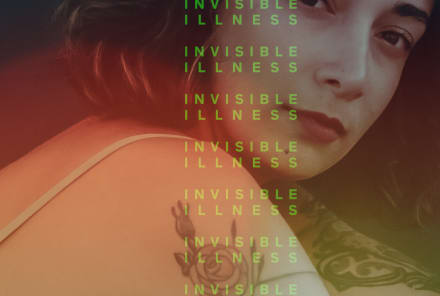Advertisement
Unconditional Love: How To Give It & Know If It's Healthy

Unconditional love is a weighty term for something that most of us don't really understand. In my work as a marriage therapist, I've found it's often used to express a type of love that exists beyond bounds. And because of this, it often creates a justification for staying in unhealthy dynamics.
What is unconditional love?
The term unconditional love does not mean love without limits or bounds. It means, "I offer you my love freely without condition." This means that when we offer our love, we offer it without expectation of repayment. It is important to offer this type of unconditional love in our relationships. Otherwise, we are offering love with "strings attached." This creates power and control imbalances.
Unconditional love means loving someone through hardships, mistakes, and frustrations. In fact, it is what every meaningful, lasting relationship is made of. When we enter relationships with other people, we are entering relationships with another human being—a person full of quirks and flaws and challenges. And we also show our own quirks and flaws and challenges.
One of the most beautiful experiences in human life is learning to lean into the tension of those challenges by offering connection, love, and understanding and by accepting influence, creating compromise, and moving forward in a way in which both people win.
Summary
What conditional love looks like
We often think of parents' love for their children as unconditional love (i.e., a parent often loves their child no matter what). In truth, we do at times see this type of "strings attached" love presented in parent-child relationships just as readily as it might be in a romantic relationship. A parent provides a certain amount of love to their child and expects some sort of return on their investment.
This "conditional love" might sound like:
- "I always gave you so much love, and this is the thanks I get?"
- "Your father and I wanted you to become a doctor. We did everything for you, and now we are disappointed with your choice to be an artist."
- "I cannot believe that is who you are marrying! I would think you'd respect me more than that after all of the love I gave you."
In the above examples, the parent is not offering unconditional love; rather, they are offering love that is contingent on the child fulfilling certain conditions. There is a ledger, and the child owes a debt. This makes for a very unhappy and disconnected relationship, or even a toxic family relationship.
Is unconditional love healthy?
It is healthy to offer your love without strings attached. Otherwise, we are not truly loving the other person. Rather, we are using affection as a tool to control.
It is not healthy to offer love without boundaries.
Our relationships require basic expectations to be fulfilled—kindness, respect, and safety. When these are not fulfilled, we might have to set hard boundaries. These boundaries might look like distancing oneself or cutting off entirely. If you do cut off, it does not mean that you offered your love with conditions.
Remember, your love did not make them indebted to you. They do not owe you anything. But you do owe yourself safety, respect, and kindness. You can walk away from people that you've loved very much in order to take care of your own needs and safety.
Summary
The problem with love without boundaries
Love without boundaries can lead to unhappiness at least and abuse at worst1. If we do not let our partners, parents, children, and friends know where we stand in terms of how we expect and need to be treated, then we will not have an equal voice in the relationship.
Sometimes, we ignore these needs for boundaries in the name of "unconditional love." However, in those moments, we are not offering unconditional love. We are offering codependent love. In codependent relationships, we are so set on maintaining the dynamics in the relationships that we excuse or enable unacceptable behavior. Again, this leads us to a place of unbalanced power and control rather than into a place of truly connected love in which we offer each person an opportunity to be responsible for their behavior with us.
There's a distinct line between loving someone through the hardships vs. accepting unacceptable behavior. The latter becomes apparent when the relationship is no longer offering the basic needs of a relationship.
If someone has harmed you and they are not willing to repair it, then you need to set a limit for your own well-being. If you find that the relationship has devolved into behavior that lacks kindness and respect, then it's likely that a boundary needs to be set. This is especially true if you have tried to communicate clearly and still see no change.
If you are enabling the person in a way that negatively affects your well-being, that isn't unconditional love—it's unhealthy, codependent love.
Unconditional love still involves healthy boundaries
While we can offer unconditional love to others (even when they are being difficult), we don't have to offer love without bounds. You can offer love that has no strings attached while still having boundaries.
Unconditional love with healthy boundaries might look like:
- "I love you and support you no matter what. However, we no longer have the finances to help you with your bills."
- "I love you, and I have to take space from you when you speak to me that way."
Unconditional love is not a binding contract
Unconditional love gets muddied when we believe that we have to continually offer that love even when basic relational expectations are no longer being fulfilled. Unconditional love means "right now, I offer you this love, and you are not indebted to me." It does not mean "I offer you this love, exactly in this way, forever, even if you start to harm me."
For example, let's take a healthy relationship in which a couple is offering each other the basic and necessary expectations in a relationship—kindness, respect, and safety. And then, that changes—one person goes through something and begins to treat their partner with disrespect or cruelty.
When that changes, you can choose to put boundaries in place or distance yourself. This doesn't mean your love hasn't been unconditional. In this case, you offered your love freely as long as you could, and then in the moment you needed to care for yourself, you set healthy boundaries.
Unconditional love means offering love without conditions in that moment. It does not necessarily mean forever. It means, "The love I am giving you right now is yours to keep. I am doing it of my own free will. You owe me nothing in return." When we love this way, we are offering true love—the type of love that allows others to be who they are. It also is the type of love that allows us to continually reassess the relationship and decide, over time, if it is still working for us and if we are still able to give our love so freely.
Summary
How to love someone unconditionally
The word unconditional can sometimes create confusion or lead us to place unrealistic expectations on ourselves and the way we love. If it's easier, consider instead the idea of wholehearted love. Wholehearted loving means leaning into the vulnerability of offering our love because we want to offer it.
Offering our love in this way means that we give it because it feels good to give it and not because we expect a particular outcome. Wholehearted love also acknowledges and prioritizes the wholeness of both the people. To give wholehearted love, you must love your partner and yourself wholly.
You will know it is wholehearted love when both people are willing to enter with their whole heart. When each person has a voice. When challenges are reflected upon. When growth happens. When there is no scoreboard because you are on the same team and not on opposing teams.
You will know it is not wholehearted love if there are strings attached, debts owed, and boundaries violated. You will especially know when you find that the basic expectations of love, kindness, and safety are not being respected.
If you're wondering what that kind of love looks like in practice, here are a few ways to love wholeheartedly:
- Pay attention to your offerings of love. Are you expecting a certain reaction? Are you offering it to receive something now or later? Has the person become indebted to you? Push yourself to offer love just because.
- Learn to accept and value influence. Wholehearted loving means that we believe our partner, child, friend, or parent has something of value to think, feel, or share. Work toward being influenced by them.
- Be transparent. Offer transparency in your interactions. Let people know what you expect. Allow people the opportunity to be successful for you.
- Learn to listen. Being a good listener is a lot more than "hearing"—it means that you truly integrate what the person is saying and show curiosity toward learning more.
- Notice the dynamics of control and nip them in the bud. Pay attention to the dynamics of control in your relationship. When you get into tension, is there an underlying motive? Are your conflicts the result of unstated needs?
Watch Next
Enjoy some of our favorite clips from classes
Enjoy some of our favorite clips from classes
What Is Meditation?
Mindfulness/Spirituality | Light Watkins
Box Breathing
Mindfulness/Spirituality | Gwen Dittmar
What Breathwork Can Address
Mindfulness/Spirituality | Gwen Dittmar
The 8 Limbs of Yoga - What is Asana?
Yoga | Caley Alyssa
Two Standing Postures to Open Up Tight Hips
Yoga | Caley Alyssa
How Plants Can Optimize Athletic Performance
Nutrition | Rich Roll
What to Eat Before a Workout
Nutrition | Rich Roll
How Ayurveda Helps Us Navigate Modern Life
Nutrition | Sahara Rose
Messages About Love & Relationships
Love & Relationships | Esther Perel
Love Languages
Love & Relationships | Esther Perel











